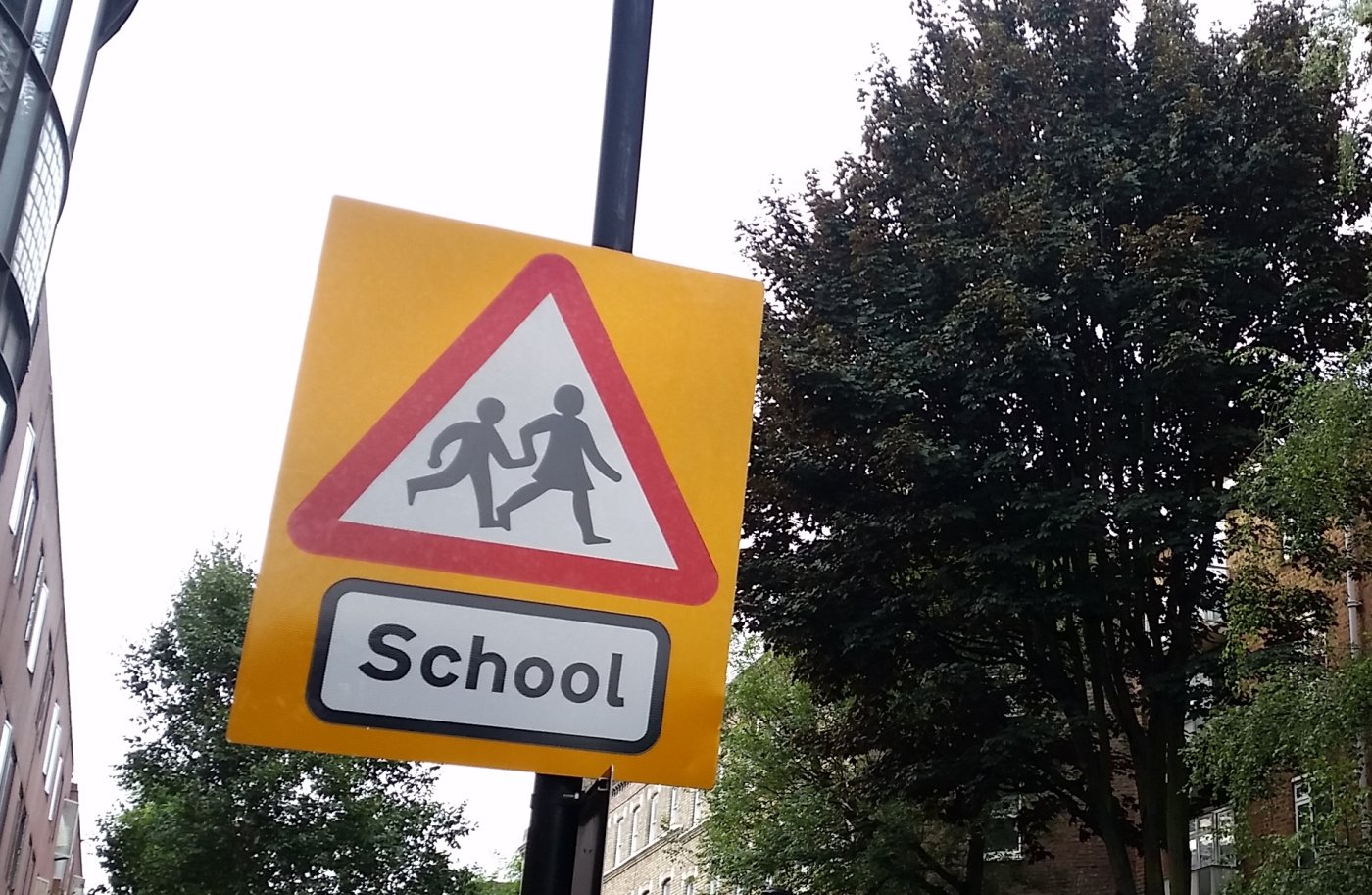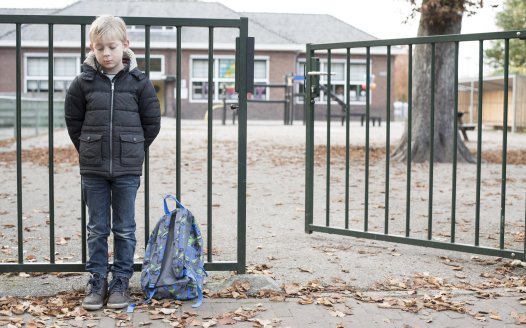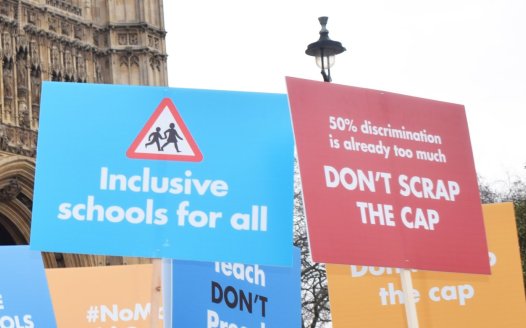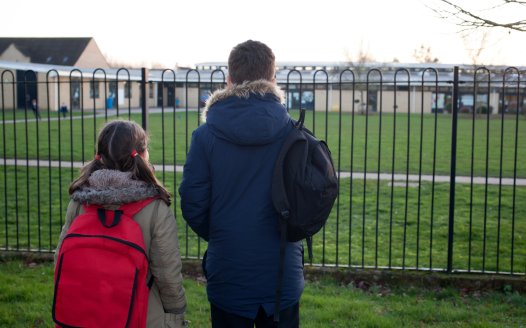Faith-based school admissions pave the way for sexist and unreasonable demands. It’s time to end them
Posted: Fri, 5th Mar 2021 by Megan Manson
An adjudicator's ruling has exposed the outrageous requirements a state-funded faith school places on pupils and their families. This shows the need to end faith-based discrimination in admissions, says Megan Manson.
Allowing state schools to prioritise children whose family belong to a particular religion is a bad idea. Using faith-based admissions criteria leads to segregation, unfairness and inequality. If it weren't for extensive exemptions in the Equality Act 2010 designed to accommodate faith schools it would certainly be unlawful.
Another upshot of allowing faith schools to pick and choose children according to religion is the proliferation of lengthy and complex admissions arrangements. For example, it's not uncommon for Catholic schools to prioritise children with Catholic baptism certificates, then children who are preparing to be baptised into Catholicism, then children with parents of other Christian denominations, then children from families of other religions, and finally any other children who don't fit into these categories (i.e. those from nonreligious families).
This is ridiculous enough. But this is by no means the limit to how outrageous school admissions can be. As a recent admissions tribunal decision demonstrates, allowing faith schools to apply their own faith-based criteria can lead to truly extraordinary requirements placed on prospective families and children.
In February the Office of the Schools Adjudicator (OSA), which decides whether or not schools are complying with the Schools Admissions Code, found a multitude of problems in the admission arrangements of Beis Yaakov Jewish High School. Beis Yaakov is an all-girls faith school located in Salford and has been state-funded since 2005.
The catalogue of issues identified by the OSA in Beis Yaakov's admissions arrangements include:
- Specifying dress codes for pupils that were not sufficiently "objective", for example, requiring pupils to conform to "the ideas of modesty and the true dignity of a Charedi Jewish girl".
- Requiring fathers of pupils to be a member of a Charedi ('ultra-Orthodox') synagogue. Because only men whose mothers are Jewish can usually join such synagogues, the OSA determined that this requirement is contrary to the School Admissions Code and to equalities legislation. The OSA also said the "understanding" that members of synagogues will make "regular voluntary contributions" meant this requirement fell foul of the prohibition on giving priority to children on the basis of financial support parents may give to religious authorities associated with a school.
- Using a panel of rabbis appointed by the local synagogue to settle disputes regarding the religiosity or Jewish status of pupils. The OSA said that it was "inappropriate" for a case to be referred to a religious institution for a decision affecting a pupil's admission to a school based on anything other than what is set out in the admission arrangements.
- Requiring parents seeking faith-based priority to provide contact details of two Charedi 'referees'. The OSA said this was inappropriate because it may breach data protection laws and render the school's admissions system "susceptible to abuse".
The deviations from the admissions code identified by the OSA are striking in themselves. But what is perhaps more shocking is the elements in Beis Yaakov's admissions criteria that the OSA did not criticise.
For example, the OSA did not object to the fact that the dress code imposed on prospective pupils and their mothers is both sexist and unreasonable. It specifies that mothers and girls "will dress at all times in accordance with the strictest standards of Tznius (modesty)", which includes prohibiting "figure hugging dresses", "very brightly coloured" clothing and clothing made from "trendy" fabrics. Additionally, mothers must completely cover their hair "at all times", sleeves "must cover the elbows at all times", and tights "should be worn at all times and it should be apparent that they are being worn".
Such outrageous demands might belong in a Victorian etiquette book. They certainly do not belong in the admissions criteria of a 21st century state school. And yet the only objection given by the OSA is that they might be difficult to understand because they aren't "objective".
It doesn't end there. The OSA's report mentioned that the admissions arrangements require families to strictly limit their children's access to all forms of communication including cinema, theatre and written material. The OSA not only fails to question these extreme restrictions the school places on the private lives of its pupils and it families – it appears to approve them. It gives the example of the requirement that "school aged children do not watch television" as one that is capable of being judged objectively, and is therefore acceptable.
This isn't the first time the OSA has given a free pass to state-funded faith school admissions arrangements that are sexist and controlling. In 2018 the OSA considered a case relating to Yesodey Hatorah Senior Girls School in London. The adjudicator effectively ruled that the school was not breaching the school admissions code by requiring families not to wear leather or lycra, access the internet or use online entertainment.
It is perplexing that the OSA can seemingly do nothing to stop a state school from imposing admissions codes that reinforce gender inequality and force parents to prevent their children from taking part in everyday society by placing severe restrictions on what they see, hear, read and wear. Indeed, both would seem contrary to the welfare and educational needs of children growing up in 21st century Britain.
But allowing any school, even if it has a less severe religious ethos, to use faith-based admissions arrangements sets a precedent for more extreme faith schools to set extremely exclusive criteria. If we accept the premise that state schools can be religious communities, which decide who can attend based on religious criteria, we make it far harder to challenge even patently ridiculous religious rules.
The issue should also cause us all to question the very existence of state-funded faith schools in the first place. Despite being funded by taxpayers from all religion and belief backgrounds, it is plain from their admissions arrangements that schools like Beis Yaakov are not intended for the whole community. They are intended only for an insular religious minority willing to obey, and make their children obey, the draconian rules of religious leaders.
While every person should have the right to choose this lifestyle, the state should not be expected to facilitate and promote it. And the state certainly should not direct our taxes to schools that cater only to this lifestyle and exclude anyone who challenges or rejects it.
No more faith schools
We need inclusive schools free from religious discrimination, privilege or control. Join our campaign.









